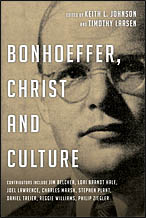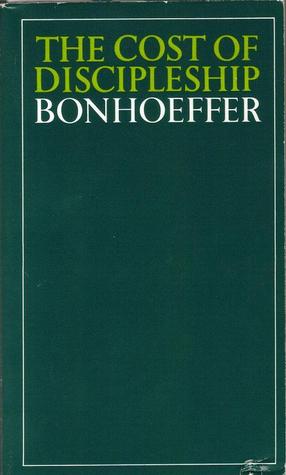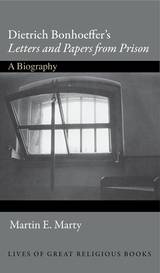
Preface
Click here for Who Am I? Dietrich Bonhoeffer as a Historical Mentor in Prayer: Part 1 and here for Part 2 (focused upon Bonhoeffer’s historical context). As you consider the relationship of Bonhoeffer’s theology to a life of prayer, I encourage you to reflect upon and discuss with others:
- how prayer guides your daily life and those who lead your religious community/communities.
- what it means that Jesus the Christ is the Lord of your head, heart, and hands in all aspects of life. Take particular note of Bonhoeffer’s understanding of suffering.
- what informs your understanding of Bonhoeffer’s theology. Note: In the future I intend to explore the Barthian, Lutheran, early church, and other Christian influences on Bonhoeffer’s theology. Bonhoeffer, Christ and Culture (InterVarsity Press, 2013), inspired by the 2012 Wheaton Theology Conference, is on my desk as a possible lens to explore this topic. If Bonhoeffer’s theology and/or a desire to review Bonhoeffer, Christ and Culture is of interest to you, please contact me.
Who Am I? – A Glimpse of Dietrich Bonhoeffer’s Theological Reflection
In The theology of Dietrich Bonhoeffer (1985), Ernst Feil provides a helpful starting place for wrestling with the complexity of summarizing Dietrich Bonhoeffer’s theological perspective.
The initial difficulty is that his work is so varied as far as the genre of texts is concerned. Next to his academic studies, Sanctorum Communio and Act and Being, there are the more spiritually oriented works, The Cost of Discipleship and Life Together; and there are, finally, the posthumously published fragments entitled Ethics and Letters and Papers From Prison. These books are augmented by a variety of texts: letters, addresses, catechetical studies, essays, memoranda, lectures, and, not least, the sermons to which Bonhoeffer devoted himself passionately. But all texts lead again and again to those last letters from prison which stimulated all the interest in Bonhoeffer and without which little notice would be paid today to the earlier writings. . . . [through his preaching we find] mystery is the root of everything comprehensible. The mystery which is close to us was also the original point of departure for Bonhoeffer’s theology (Feil, 3, 6).
To summarize Feil’s point and to elaborate further, Bonhoeffer’s varied and incomplete writing may leave one wondering where he goes with the mystery he searches to understand not only inside himself, but also in the church with God – the one who lives in mystery and eternity. For Bonhoeffer, Christology stands at the core (Marty, 49, 68) and brings together Act and Being (1931). As noted earlier, the “personal liberation” in 1932 is vital to understanding his theology. Bonhoeffer writes in The Cost of Discipleship:

When we are called to follow Christ, we are summoned to an exclusive attachment to his person. The grace of his call bursts all the bonds of legalism. It is a gracious call, a gracious commandment. It transcends the difference between the law and the gospel. Christ calls, the disciple follows; that is grace and commandment in one. . . . Discipleship means adherence to Christ, and because Christ is the object of that adherence, it must take the form of discipleship. . . . Christianity without the living Christ is inevitably Christianity without discipleship, and Christianity without discipleship is always Christianity without Christ. It remains an abstract idea, a myth which has a place for the Fatherhood of God, but omits Christ as the living son. . . . Discipleship is bound to Christ as the Mediator, and where it is properly understood, it necessarily implies faith in the Son of God as the Mediator. Only the Mediator, the God-Man, can call men to follow him (Bonhoeffer 1995, 59).
Furthermore he dedicates a chapter to “The Hiddenness of Prayer, emphasizing, “Jesus told his disciples not only how to pray, but also what to pray. The Lord’s Prayer is not merely the pattern, it is the way Christians must pray” (165). Keep in mind that The Cost of Discipleship was written before his emphasis on the Psalms. In his lectures on providing Spiritual Care, Bonhoeffer underscores the importance of prayer as “the shepherd of the congregation which needs daily care” (1985, 30):
No pastoral conversation is possible without constant prayer. Other people must know that I stand before God as I stand before them. I depend on the guidance of the Holy Spirit. There is no immediate path to another person. The path to the Christian brother leads by way of prayer and hearing God’s Word. No psychology is able to help me find the way to another person’s soul. The path is grounded in the mediatorial function of Christ. Christ the mediator stands between me and God, between me and my brother. Therefore, spiritual care never seeks to exercise direct psychic influence. Direct influence remains wholly on the surface. True encounter is only facilitated through the spirit of Christ. The other person must deal with Christ if he is to be helped. Even my piety is useless. The only imprint he should and can receive is the one that is in accordance with the imago Dei. . . . What I am able to do for another person will be shown me in prayer. Prayer commends the others into the faithful hands of Christ and Christ will deal with them. In order to pray correctly, we must be able to listen to the other person. Those who cannot hear another person are also no longer able to hear God’s Word . . . or to pray! Our love for another consists first of all in listening. . . . The pastor often accompanies the other person on pilgrimage silently and wordlessly, but at all times as intercessor (35 – 36, 38).
In Worldly Preaching: Lectures on Homiletics, Bonhoeffer underscores that the day begins at the prayer-desk with meditation on Scripture. Scripture is prayerfully considered and meditated upon in order to be properly understood for teaching and preaching, congregations are to be prayed for, and Satan’s personal temptations are to be resisted (Bonhoeffer 1991, 118-119). In “Dietrich Bonhoeffer’s theological ethic,” Nancy Duff highlights that Bethge’s research, shows Psalm 119 as Bonhoeffer’s most frequently cited Scripture (1994, 276).[1]
On the topic of suffering, Bonhoeffer writes in Psalms: The prayer book of the Bible:
There are no theoretical answers in the Psalms to all these questions, as there are none in the New Testament. The only real answer is Jesus Christ. But this answer is already sought in the Psalms. It is common to all of them that they cast every difficulty and agony on God: “We can no longer bear it, take it from us and bear it yourself, you alone can handle suffering.” That is the goal of all of the lamentation Psalms. They pray concerning the one who took upon himself our diseases and bore our infirmities, Jesus Christ. They proclaim Jesus Christ to be the only help in suffering, for in him God is with us (48).

Bonhoeffer’s focus upon the constant knowledge of death and resurrection in his Letters and papers from prison, led Wustenberg comment, “Life means participation in the sufferings of God in the world. Bonhoeffer reminds us that the Christian shares in ‘God’s sufferings through’ all his life” (Marty, 72). In response to the “death of God” movement’s use of quotes from Letters and papers from prison[2], one may point out Bonhoeffer remained in the confident practice of prayer and encouragement to others through righteous action to the bitter end. It appears he desired to confront the world with God at its strongest point of defiance (115) by providing “a hermeneutic, whereby Christ would become Lord of the world again” (68). Bethge draws attention to Bonhoeffer’s coupling of prayer and righteousness:
First, “doing the just thing among men” keeps praying from escaping into self-sufficient piety, and praying keeps the doing of the just thing from self-righteousness. Second, doing of the just thing keeps praying from that hypocrisy which the children of the world have discovered in the pious at all times, and praying keeps the doing of justice from the fanaticized ideologizing which makes those who work for change most of the time bad representatives of their own cause. Third, doing the just thing keeps praying from pessimism, which is not faith, and praying keeps doing of the jut thing from resignation, which is not Christian either. And fourth, doing keeps praying within the reality of this earth, and praying keeps doing justice in line with the truth of the Gospel (1977, 203).
As Mary Bosanquet records in The life and death of Dietrich Bonhoeffer, Franz Hildebrandt declared at the Bonhoeffer Memorial Service (London, 1945), “In his capacity to return from agonizing questions to the cheerful discipleship of Jesus Christ lies the secret of Dietrich Bonhoeffer as a man” (1968, 168).
Note: Sources Consulted for the whole project.
To be continued with Who Am I? — Praying the Psalms as part of a rule of life.
Footnotes
Tom enjoys daily conversations regarding living out the Biblical Story with his wife Theresa and their four girls, around the block, at Elizabethtown Brethren in Christ Church (where he teaches adult electives and co-leads a small group), among healthcare professionals as the Northeast Regional Director for the Christian Medical & Dental Associations (CMDA), and in higher ed as a volunteer with the Emerging Scholars Network (ESN). For a number of years, the Christian Medical Society / CMDA at Penn State College of Medicine was the hub of his ministry with CMDA. Note: Tom served with InterVarsity Christian Fellowship / USA for 20+ years, including 6+ years as the Associate Director of ESN. He has written for the ESN blog from its launch in August 2008. He has studied Biology (B.S.), Higher Education (M.A.), Spiritual Direction (Certificate), Spiritual Formation (M.A.R.), Ministry to Emerging Generations (D.Min.). To God be the glory!

Leave a Reply